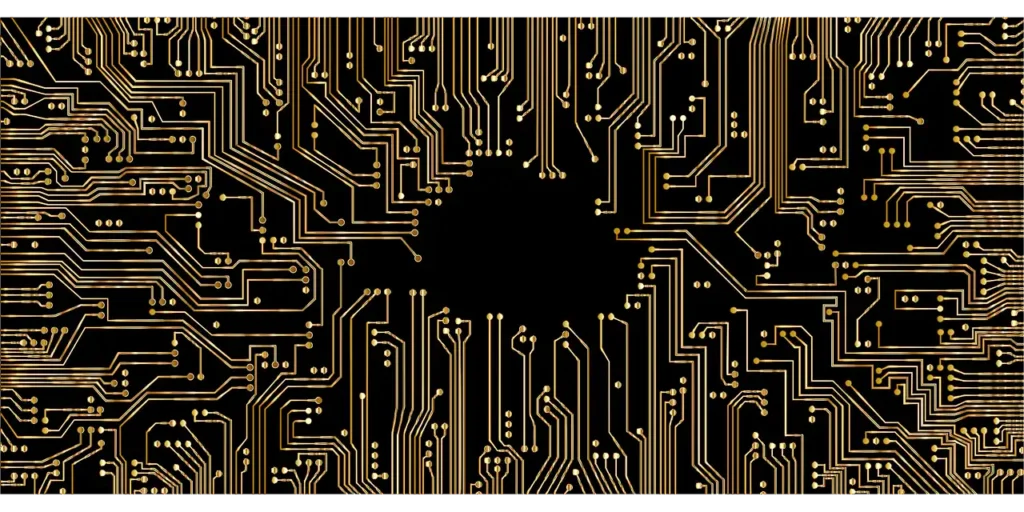Technology has become an integral part of our lives, shaping the way we work, communicate, and interact with the world around us. From smartphones and social media to artificial intelligence and renewable energy, technology continues to evolve and innovate at a rapid pace. In this comprehensive guide, we’ll explore the advantages and disadvantages of technology, highlight recent innovations, and address frequently asked questions to provide a holistic understanding of the role of technology in our modern society.
Advantages of Technology:
Increased Efficiency: Technology has significantly improved efficiency in various sectors, from manufacturing and transportation to healthcare and education. Automation and digitalization of processes have streamlined operations, reduced errors, and increased productivity.
Improved Communication: Advances in communication technology, such as email, instant messaging, and video conferencing, have made it easier and faster to communicate with people around the world, breaking down geographical barriers and facilitating collaboration.
Access to Information: The internet has democratized access to information, allowing people to quickly access a vast amount of knowledge on any topic. This has empowered individuals to learn new skills, pursue education, and stay informed about current events.
Economic Growth: Technology drives economic growth by fostering innovation, creating new industries and jobs, and increasing global competitiveness. It has led to the development of new products and services, driving entrepreneurship and economic prosperity.
Enhanced Healthcare: Technological advancements in healthcare, such as medical imaging, telemedicine, and wearable devices, have improved diagnosis, treatment, and patient care. This has led to better health outcomes, reduced healthcare costs, and increased accessibility to medical services.
Environmental Sustainability: Technology plays a crucial role in addressing environmental challenges, such as climate change and pollution. Innovations in renewable energy, energy efficiency, and sustainable agriculture help reduce carbon emissions and preserve natural resources.
Convenience and Connectivity: Technology has made our lives more convenient and interconnected, with innovations like smartphones, smart home devices, and online shopping. These technologies simplify tasks, save time, and enhance our overall quality of life.
Disadvantages of Technology:
Digital Divide: The digital divide refers to the gap between those who have access to technology and the internet and those who do not. This disparity can exacerbate social and economic inequalities, limiting opportunities for education, employment, and participation in the digital economy.
Privacy Concerns: As technology becomes more pervasive in our lives, concerns about data privacy and security have grown. Instances of data breaches, identity theft, and surveillance raise questions about the protection of personal information and the erosion of privacy rights.
Cybersecurity Threats: The increasing reliance on digital systems and networks has made society vulnerable to cybersecurity threats, such as malware, phishing attacks, and ransomware. These threats can disrupt critical infrastructure, compromise sensitive information, and undermine trust in digital systems.
Social Isolation: Despite its potential to connect people, technology can also contribute to social isolation and loneliness. Excessive use of social media, online gaming, and virtual interactions may lead to reduced face-to-face communication and interpersonal relationships.
Job Displacement: Automation and artificial intelligence have led to concerns about job displacement and the loss of traditional employment opportunities. Industries that rely on manual labor or repetitive tasks are particularly vulnerable to automation, leading to unemployment and economic disruption.
Technological Dependence: Society’s increasing dependence on technology has raised concerns about resilience and vulnerability to system failures or cyberattacks. Reliance on digital systems for essential services such as banking, transportation, and healthcare creates risks of disruption and widespread impact in the event of failures.
Environmental Impact: While technology can contribute to environmental sustainability, it also has a significant environmental footprint. The production, use, and disposal of electronic devices contribute to resource depletion, pollution, and electronic waste, posing environmental challenges that need to be addressed.
Recent Innovations in Technology:

Artificial Intelligence (AI) and Machine Learning: AI and machine learning technologies continue to advance, enabling machines to perform increasingly complex tasks and make autonomous decisions. Applications range from virtual assistants and recommendation systems to autonomous vehicles and medical diagnostics.
Internet of Things (IoT): The Internet of Things (IoT) connects everyday objects to the internet, enabling them to collect, analyze, and exchange data. IoT applications include smart home devices, wearable technology, and industrial sensors, driving efficiency, convenience, and connectivity.
5G Technology: The rollout of 5G technology promises faster internet speeds, lower latency, and greater connectivity, unlocking new opportunities for innovation in areas such as autonomous vehicles, augmented reality, and remote healthcare.
Renewable Energy Solutions: Innovations in renewable energy technologies, such as solar power, wind energy, and energy storage, are driving the transition to a more sustainable energy future. These technologies offer clean, renewable alternatives to fossil fuels and help reduce carbon emissions.
Biotechnology and Genomics: Advances in biotechnology and genomics are revolutionizing healthcare, agriculture, and environmental conservation. Breakthroughs such as gene editing, personalized medicine, and synthetic biology have the potential to address pressing challenges and improve quality of life.
Quantum Computing: Quantum computing represents a paradigm shift in computing technology, leveraging the principles of quantum mechanics to perform computations at unprecedented speeds. Quantum computers have the potential to solve complex problems in areas such as cryptography, drug discovery, and materials science.
Blockchain and Cryptocurrency: Blockchain technology, the underlying technology behind cryptocurrencies like Bitcoin and Ethereum, is being explored for its potential applications beyond digital currency. Blockchain offers secure and transparent solutions for various use cases, including supply chain management, voting systems, and decentralized finance.
Conclusion:
In conclusion, technology has transformed the way we live, work, and interact with the world, offering numerous advantages and opportunities for innovation. From increased efficiency and connectivity to advances in healthcare and renewable energy, technology has the potential to address some of society’s most pressing challenges. However, it also poses risks and challenges, including concerns about privacy, cybersecurity, and environmental impact. As technology continues to evolve and shape our future, it is essential to strike a balance between harnessing its benefits and mitigating its drawbacks. By promoting responsible innovation, ethical use of technology, and inclusive access, we can harness the power of technology to create a more sustainable, equitable, and prosperous society.
FAQs:
What is technology?
Technology refers to the application of scientific knowledge and tools to solve practical problems, improve processes, and achieve specific goals. It encompasses a wide range of tools, techniques, and systems used to create, manipulate, and utilize information and resources.
How does technology impact society?
Technology has a profound impact on society, influencing how we live, work, communicate, and interact with the world. It shapes our economy, culture, and environment, driving innovation, productivity, and social change.
What are the ethical considerations related to technology?
Ethical considerations related to technology include concerns about privacy, security, equity, and accountability. It is essential to consider the ethical implications of technological advancements and ensure that technology is developed and used in ways that benefit society and respect human rights.
How can we address the digital divide?
Addressing the digital divide requires efforts to increase access to technology, internet connectivity, and digital literacy skills, particularly for underserved communities and marginalized populations. This may involve initiatives such as infrastructure development, subsidies for internet access, and educational programs.
What role does regulation play in technology?
Regulation plays a crucial role in ensuring the responsible development and use of technology, protecting consumers, promoting competition, and addressing societal concerns. However, regulation should be balanced to foster innovation and avoid stifling technological progress.
